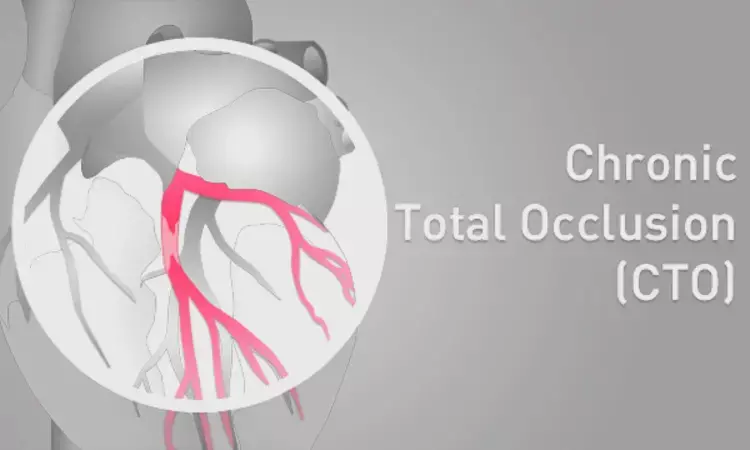- Home
- Medical news & Guidelines
- Anesthesiology
- Cardiology and CTVS
- Critical Care
- Dentistry
- Dermatology
- Diabetes and Endocrinology
- ENT
- Gastroenterology
- Medicine
- Nephrology
- Neurology
- Obstretics-Gynaecology
- Oncology
- Ophthalmology
- Orthopaedics
- Pediatrics-Neonatology
- Psychiatry
- Pulmonology
- Radiology
- Surgery
- Urology
- Laboratory Medicine
- Diet
- Nursing
- Paramedical
- Physiotherapy
- Health news
- Fact Check
- Bone Health Fact Check
- Brain Health Fact Check
- Cancer Related Fact Check
- Child Care Fact Check
- Dental and oral health fact check
- Diabetes and metabolic health fact check
- Diet and Nutrition Fact Check
- Eye and ENT Care Fact Check
- Fitness fact check
- Gut health fact check
- Heart health fact check
- Kidney health fact check
- Medical education fact check
- Men's health fact check
- Respiratory fact check
- Skin and hair care fact check
- Vaccine and Immunization fact check
- Women's health fact check
- AYUSH
- State News
- Andaman and Nicobar Islands
- Andhra Pradesh
- Arunachal Pradesh
- Assam
- Bihar
- Chandigarh
- Chattisgarh
- Dadra and Nagar Haveli
- Daman and Diu
- Delhi
- Goa
- Gujarat
- Haryana
- Himachal Pradesh
- Jammu & Kashmir
- Jharkhand
- Karnataka
- Kerala
- Ladakh
- Lakshadweep
- Madhya Pradesh
- Maharashtra
- Manipur
- Meghalaya
- Mizoram
- Nagaland
- Odisha
- Puducherry
- Punjab
- Rajasthan
- Sikkim
- Tamil Nadu
- Telangana
- Tripura
- Uttar Pradesh
- Uttrakhand
- West Bengal
- Medical Education
- Industry
Successful CTO-PCI improves quality of life, outcomes in chronic total occlusion patients with diabetes

China: In chronic total occlusion (CTO) patients with diabetes, timely, successful CTO-PCI (percutaneous coronary intervention) is necessary to improve clinical outcomes, symptoms and quality of life (QoL), a recent study in Cardiovascular Diabetology has shown.
Chronic total occlusion accounts for about 13–41% of CAD (coronary artery disease) patients undergoing coronary angiography (CAG). Previous studies have shown that successful PCI of CTO could relieve angina and dyspnea, prolong long-term survival, and improve ventricular function than failed revascularization.
Diabetes is commonly observed in CTO patients, but data is controversial on the impact of successful PCI on the clinical outcome of CTO patients with diabetes. Also, no studies have compared QoL after CTO-PCI in patients with and without diabetes. To fill this knowledge gap, Shuai Zhao, The Fourth Military Medical University, Shaanxi, People's Republic of China, and colleagues aimed to comprehensively inquire about the impact of successful CTO-PCI on clinical outcomes, symptoms and quality of life. They also identified the variables linked with the risk of all-cause mortality and MACE (major adverse cardiac event) in CTO patients with diabetes.
For this purpose, the researchers prospectively enrolled consecutive patients undergoing elective CTO-PCI. They were subdivided into two groups: diabetes and no diabetes. Collection of assessment of symptoms and QOL, detailed baseline characteristics, in-hospital complications, angiographic and procedural details, and one year and 1-month follow-data was done. Data analysis was done according to the risk predictor of clinical outcomes in patients having diabetes and received successful CTO-PCI. A total of 1076 patients underwent CTO-PCI.
The authors reported the following findings:
· Diabetes was present in 34.76% of patients with more hypertension, previous PCI and stroke.
· Regarding the coronary lesions, patients with diabetes suffered more left circumtrunnion coronary artery (LCX) lesions, blunt stump, multivessel disease, number of lesions per patient, calcification and higher J-CTO score.
· In-hospital MACE (4.13% vs 5.35%) was similar in the two groups.
· At one month and 1-year follow-up after successful CTO-PCI, the risk of MACE and all-cause mortality were comparable in the two groups.
· Number of lesions per patient was an independent risk factor of all-cause mortality and MACE one year after successful CTO-PCI.
· Symptom and QOL were significantly improved regardless of diabetes at one month and 1-year follow-up, and importantly, diabetes patients showed comparable degrees of improvement to those without diabetes.
"Successful CTO-PCI could be an effective strategy for improving clinical outcome, symptoms and quality of life in chronic total occlusion patients with diabetes," the authors concluded.
Reference:
Zhao, S., Chen, Y., Wang, Q. et al. Benefits of successful percutaneous coronary intervention in chronic total occlusion patients with diabetes. Cardiovasc Diabetol 21, 271 (2022). https://doi.org/10.1186/s12933-022-01708-0
Dr Kamal Kant Kohli-MBBS, DTCD- a chest specialist with more than 30 years of practice and a flair for writing clinical articles, Dr Kamal Kant Kohli joined Medical Dialogues as a Chief Editor of Medical News. Besides writing articles, as an editor, he proofreads and verifies all the medical content published on Medical Dialogues including those coming from journals, studies,medical conferences,guidelines etc. Email: drkohli@medicaldialogues.in. Contact no. 011-43720751


